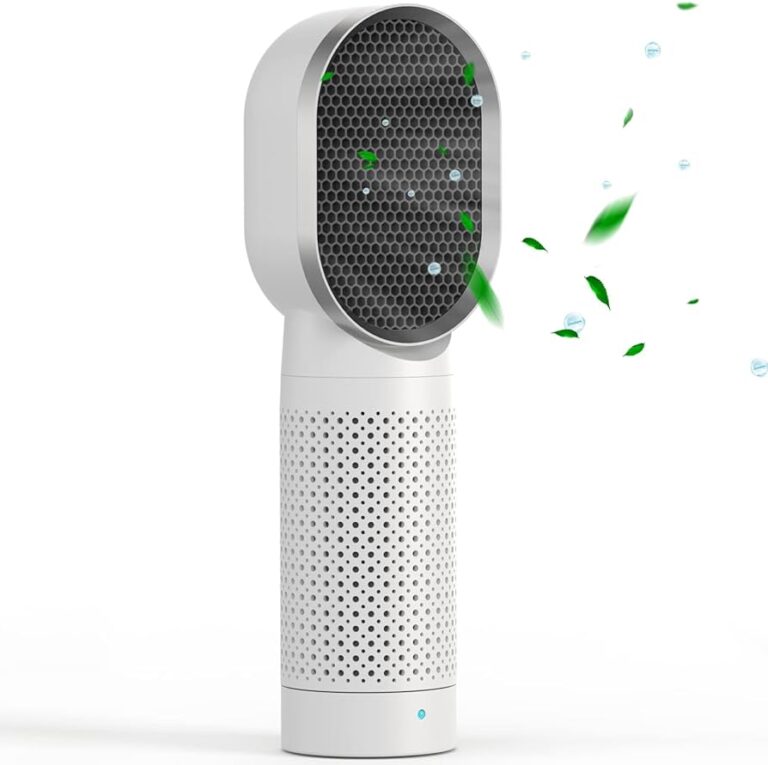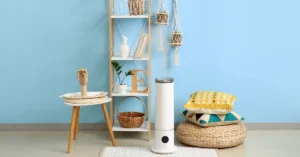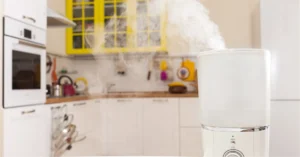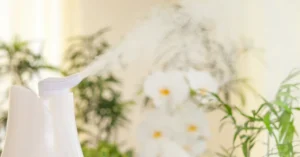Yes, ionized air purifiers are generally safe for cats. Ionized air purifiers are a popular choice for improving indoor air quality, but pet owners may wonder if these devices are safe for their cats.
The use of ionized air purifiers is generally considered safe for feline companions. These purifiers release negatively charged ions into the air, which attach to particles such as dust, allergens, and odors, causing them to become too heavy to remain airborne.
Cats are not usually affected by these ions, and the benefits of cleaner air can help improve their overall health and well-being. However, it is always a good idea to consult with a veterinarian before introducing any new environmental changes to ensure the safety and well-being of your furry friend.

Credit: www.lowes.com
Understanding The Impact Of Ionized Air On Cats
Negative ions are a common feature of ionized air purifiers. These purifiers are designed to improve air quality by releasing negatively charged particles into the air. However, for cat owners, it is essential to understand the impact of ionized air on their feline friends.
Negative ions themselves are not inherently dangerous for cats. In fact, these charged particles can help to remove pollutants from the air and create a cleaner environment. However, excessive exposure to negative ions can have potential risks for cats.
Cats may experience various symptoms when exposed to high levels of negative ions. These symptoms can include fatigue, increased respiratory distress, and skin irritations. It’s important to monitor your cat’s behavior and health when utilizing an ionized air purifier.
To ensure the safety of your furry companion, it is recommended to consult with a veterinarian before using an ionized air purifier, especially if your cat has pre-existing respiratory or skin conditions. By understanding the basics of negative ions and being aware of potential symptoms, cat owners can make informed decisions regarding the use of ionized air purifiers.
Debunking The Myth: Are Ionized Air Purifiers Safe For Cats?
Ionized air purifiers have become increasingly popular in recent years, with many manufacturers claiming that they improve indoor air quality and are safe for both humans and pets, including cats. However, it is important to examine these claims and consider the potential effects of negative ion exposure on cat health.
Scientific evidence on the impact of negative ion exposure specifically on cats is limited. While negative ions are generally considered safe for humans, it is unclear whether the same applies to our feline companions. Cats have unique physiological and metabolic systems that may react differently to negative ion exposure.
Expert opinions on the safety of ionized air purifiers for cats are varied. Some experts believe that the levels of negative ions generated by these purifiers are too low to have any significant impact on cat health. Others, however, express concerns about potential respiratory issues or other health problems that may arise from prolonged exposure to negative ions.
Ultimately, more research is needed to fully understand the effects of ionized air purifiers on cat health. In the meantime, if you decide to use an ionized air purifier in your home with cats, it is important to closely monitor their behavior and consult with a veterinarian if you notice any unusual symptoms or changes in their health.
Safe Alternatives To Ionized Air Purifiers For Cat Owners
Are Ionized Air Purifiers Safe for Cats
When it comes to ensuring the safety and well-being of our feline friends, cat owners often wonder about the safety of ionized air purifiers. While these purifiers can effectively remove airborne particles, they may also emit ozone, which can be harmful to cats’ respiratory systems. Therefore, it is essential for cat owners to seek safe alternatives to ionized air purifiers to improve indoor air quality.
Safe Alternatives to Ionized Air Purifiers for Cat Owners
One of the safest options for cat owners is to use HEPA filters in their air purifiers. These filters can effectively capture and trap harmful particles in the air without emitting any ozone. Additionally, there are other cat-friendly air purifier options available in the market. Look for air purifiers that use activated carbon filters, which can effectively remove odors and airborne chemicals without posing any risks to your cat’s health.
Natural Methods to Improve Indoor Air Quality for Cats
While air purifiers can greatly improve indoor air quality, there are also natural methods that cat owners can consider. Increasing ventilation in your home by opening windows and using fans can help to reduce the accumulation of allergens and pollutants. Regular vacuuming and dusting are also important in removing pet dander and other particles that can trigger allergies in cats.
By being mindful of the air quality in your home and making use of safe alternatives to ionized air purifiers, you can create a healthy and comfortable environment for your beloved feline companion.
Frequently Asked Questions Of Are Ionized Air Purifiers Safe For Cats
Is An Air Purifier Ionizer Safe For Cats?
Yes, air purifiers with ionizers are generally safe for cats. They help remove allergens and particles from the air, reducing potential irritants. However, it’s important to choose a purifier with low ozone emissions and follow manufacturer’s guidelines for safe use around pets.
Are Air Purifiers Good For Cats Health?
Air purifiers can be beneficial for the health of cats. They help remove allergens and pet dander from the air, reducing the risk of allergies and respiratory issues. Additionally, clean air promotes a healthier environment for cats to thrive in.
Will An Air Purifier Get Rid Of Cat Urine Smell?
Yes, an air purifier can help eliminate cat urine smell by filtering and purifying the air, removing the odor-causing particles. It is important to choose a purifier with a strong odor elimination feature, such as activated carbon or HEPA filters, to effectively get rid of the smell.
Why Is My Cat Obsessed With My Air Purifier?
Cats are attracted to air purifiers due to the sounds and smells emitted, resembling prey or outdoor scents. The movement of air and the gentle humming appeal to their instincts, making them curious and fascinated. Ensure the purifier is safe for your pet and supervise their interactions.
Conclusion
To sum up, while ionized air purifiers can improve air quality by reducing airborne pollutants, they may pose some potential risks to cats. The release of ozone, a byproduct of ionization, can be harmful to feline respiratory systems. It is crucial for cat owners to prioritize their pets’ safety by considering alternative air purification methods that do not produce ozone.
Consulting with a veterinarian and opting for HEPA filters or activated carbon filters can be a safer choice for creating a healthy environment for both cats and humans alike.




